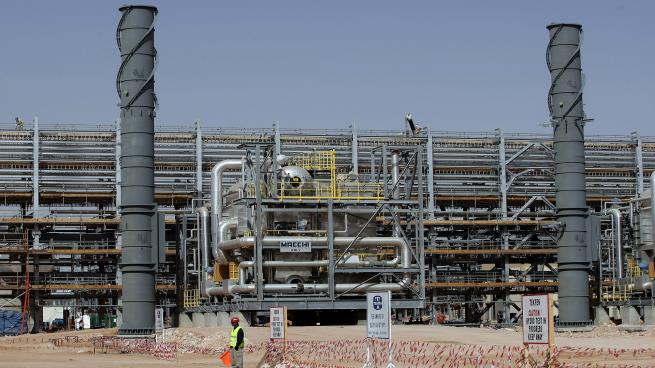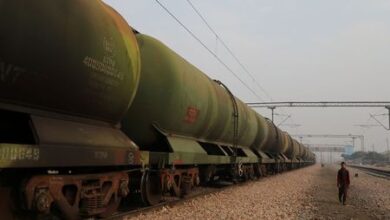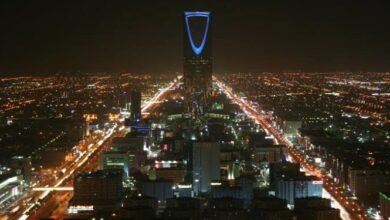Sharp decline in Saudi economy’s growth rates

The Kingdom’s economy suffers from a severe decline in the growth rates due to the sharp contraction of the oil sector, the failure of the policies of the Saudi regime and the corruption of its symbols.
Official data showed that the Kingdom’s economy grew by 0.3% in the year 2019, which was below expectations, due to the sharp contraction of the oil sector.
The non-oil sector grew 3.3 percent in real terms last year, according to figures released by the General Authority for Statistics, the highest rate since 2014.
The gross domestic product came less than the 0.9 percent level officially expected by Saudi Arabia, while the oil sector declined 3.6 percent, and the authority said that expansion in the non-oil sector was mainly driven by growth in the private sector, which reached 3.8 percent.
The data showed Saudi exports fell 10.4 percent year on year, due to a 14 percent drop in oil exports.
In 2019, the financial, insurance, corporate services, retail, restaurants, and hotel sectors were among the activities that witnessed the highest growth rate, in line with the government’s interest in investing in areas such as tourism and entertainment, and the energy and industrial sectors contracted.
The governor of the Saudi Arabian Monetary Agency (the Central Bank), Ahmed Al-Khulaifi, said last month that the non-oil sector will support the Kingdom’s economic growth this year, despite its suffering that may be exacerbated by the spread of the Coronavirus globally.
The Kingdom decided last week to suspend entry of foreigners for Umrah purposes, visit the Prophet’s Mosque, and hold tourist visas from at least 25 countries where the emerging Coronavirus appeared.
Hajj and Umrah are an important source of revenue for the Kingdom, and are the backbone of plans to increase visitor numbers within the ambitious economic reform program of Crown Prince Mohammed bin Salman.
Jason Toffey, chief economist of emerging markets at Capital Economics, said the effects of travel restrictions on the Saudi economy may be “significant”, as the tourism sector contributes ten percent of Saudi gross domestic product, according to the World Travel and Tourism Council.
He added, “The blow to which the economy may be exposed due to these travel restrictions, along with the constant threat of new oil production cuts, means that our expectations… are very risky.”
This comes as Gulf stock exchanges incurred heavy losses of nearly $76 billion during today’s trading, which analysts described as a “black Sunday”, as indicators in all markets collapsed and investors scrambled towards random selling, in an attempt to flee with their money, fearing the expansion of the scope The damage caused by the new Corona virus after its rapid spread in the Gulf countries.
Trading screens in the Kingdom, UAE, Bahrain, Sultanate of Oman and Kuwait became clear in red, as the Kuwait Stock Exchange suffered the largest losses in terms of points, after its first index fell by 10.98 per cent, with NBK shares declining by 14.5 per cent.
The general index of the Kingdom’s market fell 3.71%, the general index of the Dubai Financial Market fell by 4.49%, Abu Dhabi 3.62%, Bahrain 3.37%, and the Muscat Market 1.2%.
The Kingdom’s stock exchange recorded the largest losses in terms of market value, as it incurred 214 billion riyals ($57 billion), as the market value of listed stocks fell to 8.21 trillion riyals, compared to 8.43 billion riyals in the previous session, last Thursday.
A report prepared by the Kuwait-based International Investment Company showed that the losses of Gulf stock exchanges during last February amounted to about $150 billion, the largest share of which was for the Kingdom’s market at about $82 billion.





